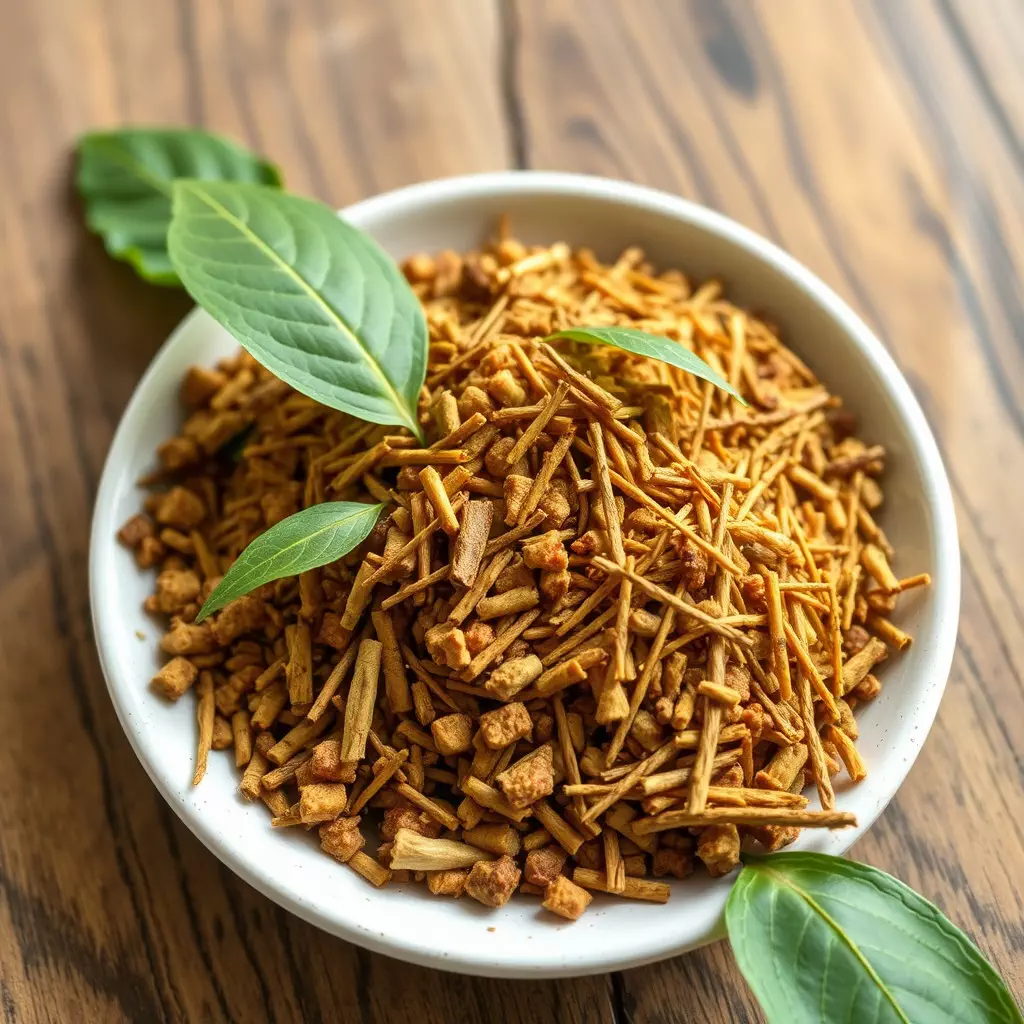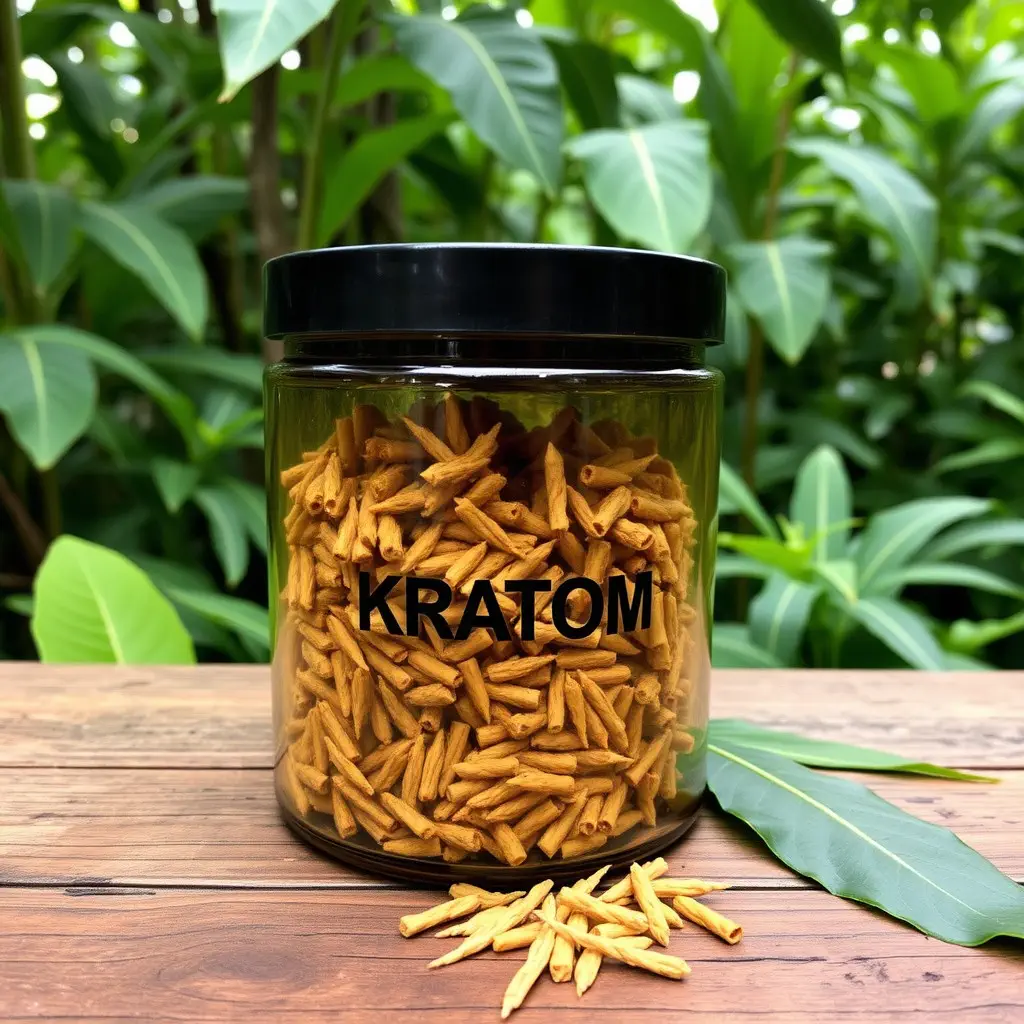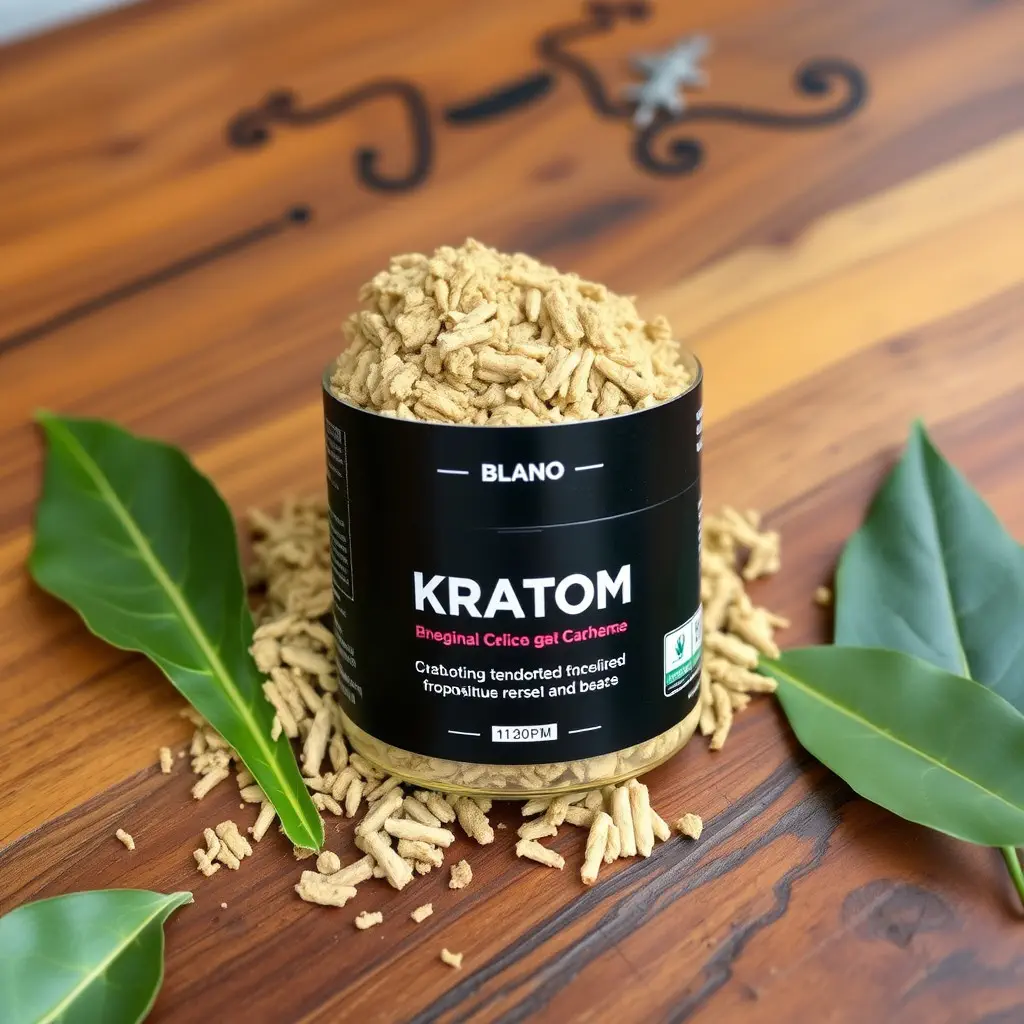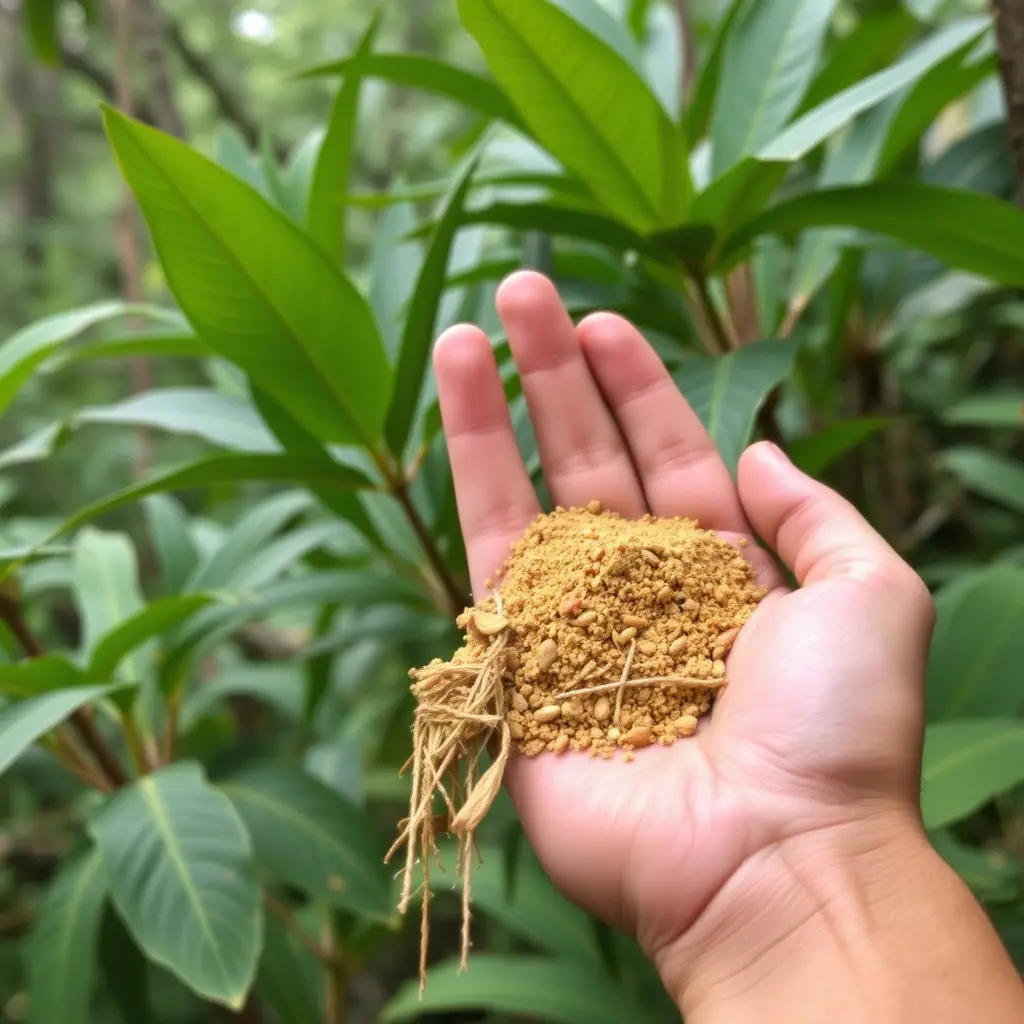Kratom, derived from Southeast Asian Mitragyna speciosa plants, is being explored as a natural supplement that could offer therapeutic benefits for individuals with fibromyalgia. Its alkaloids, such as mitragynine and 7-hydroxymitragynine, may modulate the immune system by affecting cytokine levels, potentially easing symptoms like pain and fatigue often associated with the condition. While it presents a different approach compared to conventional treatments, offering a holistic alternative with fewer side effects, it's crucial for individuals to consult healthcare professionals before incorporating kratom into their health regimen. This is to ensure safe dosing and to consider potential interactions with other medications or personal health factors. Ongoing research aims to clarify how kratom can influence immune system regulation in fibromyalgia, with the ultimate goal of determining its effectiveness in symptom relief and improving quality of life for patients dealing with this complex syndrome. It's important to consider kratom as part of a comprehensive treatment plan that includes diet, exercise, stress management, and sufficient sleep to optimize its potential benefits for fibromyalgia support.
explore the multifaceted benefits of kratom in modulating the immune system, offering relief for those with fibromyalgia. This article delves into the mechanisms by which kratom can support and regulate immune responses, providing a scientific rationale for its incorporation into holistic management strategies for this condition. Understanding kratom’s role in immune system function paves the way for a more informed approach to fibromyalgia care, emphasizing natural supplementation alongside conventional treatments.
- Unraveling the Potential of Kratom in Alleviating Fibromyalgia Symptoms Through Immune System Modulation
- The Science Behind Kratom and Its Role in Immune System Regulation for Fibromyalgia Sufferers
- Integrating Kratom into a Holistic Approach: Enhancing Immune Function in the Management of Fibromyalgia
Unraveling the Potential of Kratom in Alleviating Fibromyalgia Symptoms Through Immune System Modulation

Kratom, a plant from Southeast Asia with leaves that contain a variety of alkaloids, has garnered attention for its potential therapeutic properties. Among the conditions where kratom may offer relief is fibromyalgia, a syndrome characterized by widespread pain, tender points, and fatigue. Emerging research suggests that kratom could serve as a natural support for individuals with fibromyalgia by modulating the immune system. Alkaloids present in kratom, such as 7-hydroxymitragynine and mitraphylline, are believed to influence the body’s immune response by regulating cytokines, which are key signaling molecules in the immune system. This regulation could potentially alleviate some of the symptoms associated with fibromyalgia, such as pain, fatigue, and mood disturbances.
The potential benefits of kratom for fibromyalgia support hinge on its ability to modulate the immune response without causing the same side effects commonly associated with pharmaceutical interventions. Unlike traditional medications that often target symptoms directly, kratom’s action on the immune system may offer a more holistic approach to managing this complex condition. However, it is crucial for individuals considering kratom as an adjunct treatment to consult healthcare professionals first. This is because the appropriate dosage and preparation of kratom can vary significantly, and its effects may interact with other medications or health conditions. As such, the scientific community continues to explore the mechanisms behind kratom’s influence on immune system function and regulation in the context of fibromyalgia, with the aim of elucidating its potential role in alleviating symptoms and improving the quality of life for those affected by this condition.
The Science Behind Kratom and Its Role in Immune System Regulation for Fibromyalgia Sufferers

Kratom, a plant native to Southeast Asia, has garnered attention in the realm of natural remedies, particularly for those suffering from fibromyalgia. Its leaves contain alkaloids such as mitragynine and 7-hydroxymitragynine, which are believed to interact with the body’s opioid receptors, providing pain relief and potentially modulating the immune response. For individuals with fibromyalgia, a condition characterized by widespread pain, fatigue, and tenderness in localized areas, the immune system often presents an intricate challenge due to its dysregulation. Kratom for fibromyalgia support may offer a dual benefit: alleviating symptoms of pain and fatigue while also influencing the immune system’s function. Preliminary studies suggest that kratom could play a role in balancing cytokine levels, which are proteins key to cell signaling and immune response. This balance is crucial for fibromyalgia sufferers as an overactive immune response can exacerbate symptoms, while an underactive one may fail to adequately protect the body. The potential of kratom to support immune system regulation in fibromyalgia patients underscores the importance of further research to elucidate its mechanisms and optimal use, ensuring safe and effective application within therapeutic contexts.
Integrating Kratom into a Holistic Approach: Enhancing Immune Function in the Management of Fibromyalgia

Kratom, derived from the leaves of Mitragyna speciosa, has garnered attention for its potential role in supporting immune system function and regulation, particularly within the context of chronic conditions like fibromyalgia. The alkaloids found in kratom, such as mitragynine and 7-hydroxymitragynine, have been studied for their immunomodulatory effects, which may aid in enhancing the body’s natural defenses against infection and disease. For individuals grappling with fibromyalgia, a condition characterized by widespread pain, fatigue, and a host of other symptoms, the immune system often operates in an heightened state. Integrating kratom for fibromyalgia support into a holistic health regimen may offer modulatory benefits that help to stabilize the overactive immune response, potentially leading to reduced pain and inflammation, and improved overall well-being.
When incorporating kratom into a holistic approach for managing fibromyalgia, it is crucial to approach its use with caution and under the guidance of a healthcare provider. The interplay between kratom and other treatments, including pharmaceuticals and complementary therapies, must be carefully managed to avoid adverse interactions. Additionally, individual responses to kratom can vary significantly, making personalized dosing and administration key components of an effective treatment plan. By considering kratom for fibromyalgia support as part of a comprehensive strategy that includes proper nutrition, exercise, stress management techniques, and adequate sleep hygiene, individuals may find improved immune system function and better regulation of the symptoms associated with fibromyalgia, contributing to an enhanced quality of life.
Kratom has emerged as a multifaceted resource for individuals with fibromyalgia, offering support that extends beyond symptom relief. The article elucidates how Kratom’s interaction with the immune system can aid in its function and regulation, potentially alleviating chronic pain and other fibromyalgia symptoms. By integrating Kratom into a holistic approach, patients may enhance their overall well-being, with promising scientific evidence backing its use for immune modulation. As research continues to evolve, it is clear that Kratom for fibromyalgia support presents a promising avenue for those seeking natural alternatives to manage this complex condition.






